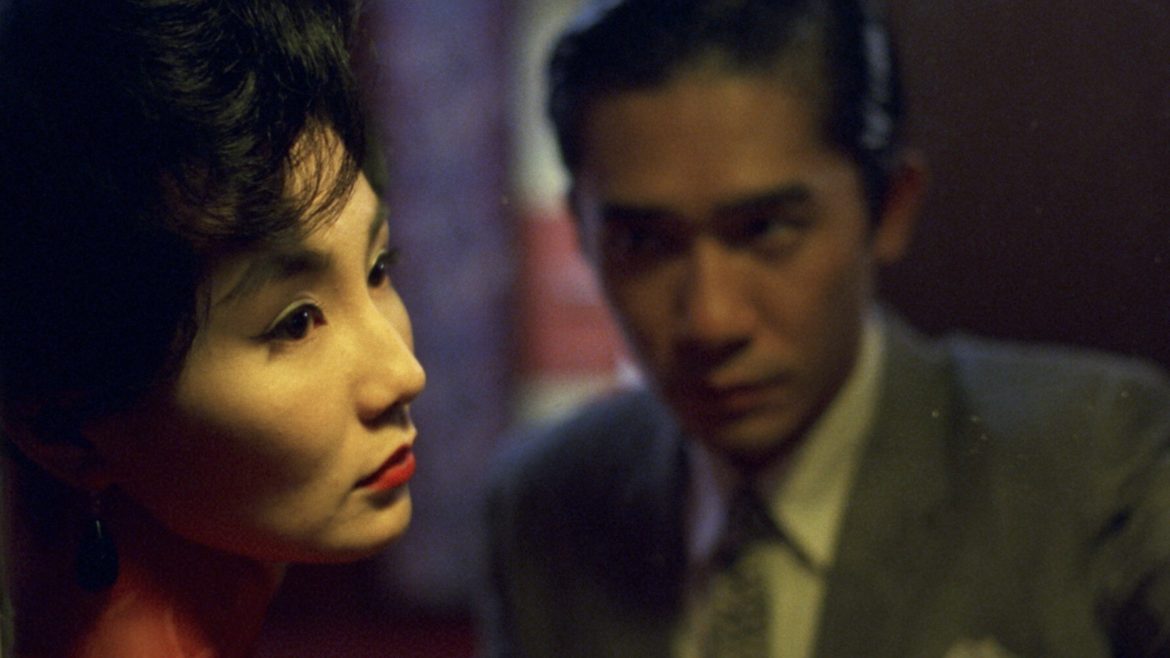In this glorious Blu-ray box set from Criterion is seven 4K restorations of the films of the great Hong Kong director Wong Kar-Wai. Included are making-of documentaries, copious interviews with the director and cast, and short films by the director, some available for the first time. The release date is March 23.
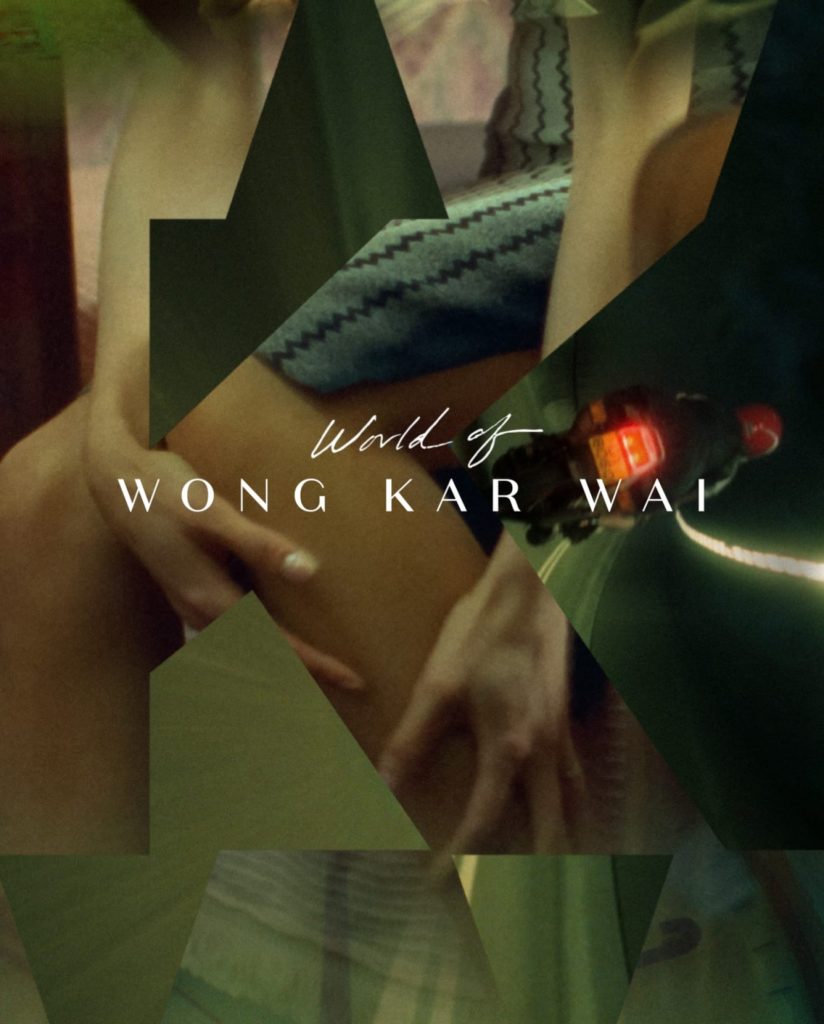
Now, we all have our favorite directors, but for me the films of Wong Kar-Wai get me right to my core. I’m trying to remember the first film I ever saw one by him- perhaps Chungking Express or maybe the dazzling Fallen Angels. But after that I had to track down his other films, spending long hours in Chinatown DVD stores trying to locate some of his earlier masterworks. This box set is a culmination of sorts, offering a novice filmgoer the ability to revel in the director’s anarchic spirit, cinematographer Christopher Doyle’s swooning visuals, and those haunting, intoxicating soundtracks. Here are the films included:
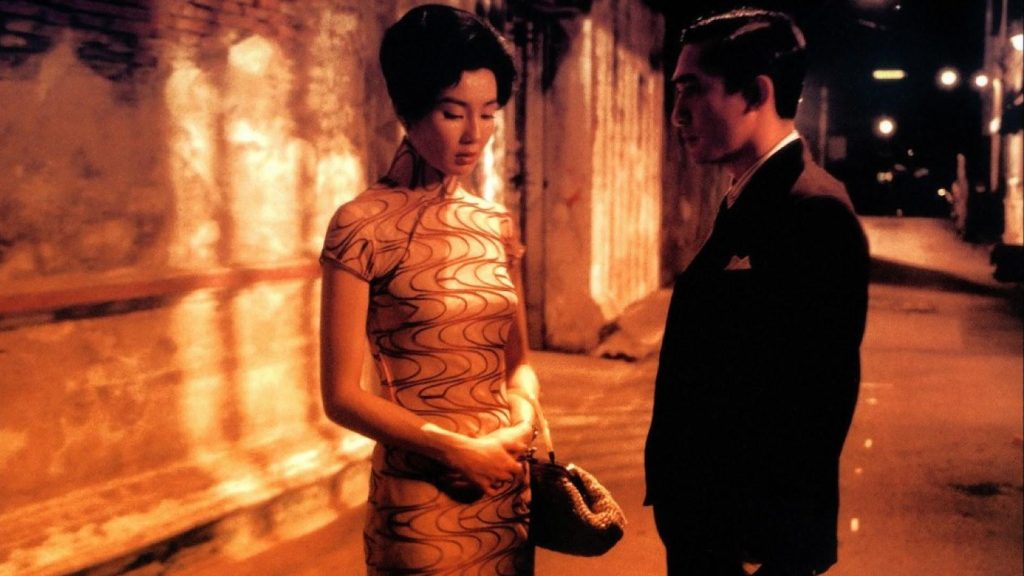
In the Mood for Love (2000) A sense of melancholy courses through this unforgettable film by Wong Kar-wai about a doomed romance set in Hong Kong in 1962. Two neighbors, Chow (Tony Leung Chiu-wai) and Li-zhen (Maggie Cheung) discover their spouses are having an affair. Both are devastated and seek each other’s company for comfort. Their feelings for each other deepen but they refuse to succumb and “be just like them”. Wong Kar-wai never tells a story in any normal way- Chungking Express; Fallen Angels and Happy Together couldn’t be more different stylistically. Here his camera work is playful and a bit formal, with slight shifts to slow-motion, and a string composition by Michael Galasso and songs by Nat King Cole swelling up on the soundtrack from time to time. It’s difficult to describe how romantic, mysterious and gorgeous it is.
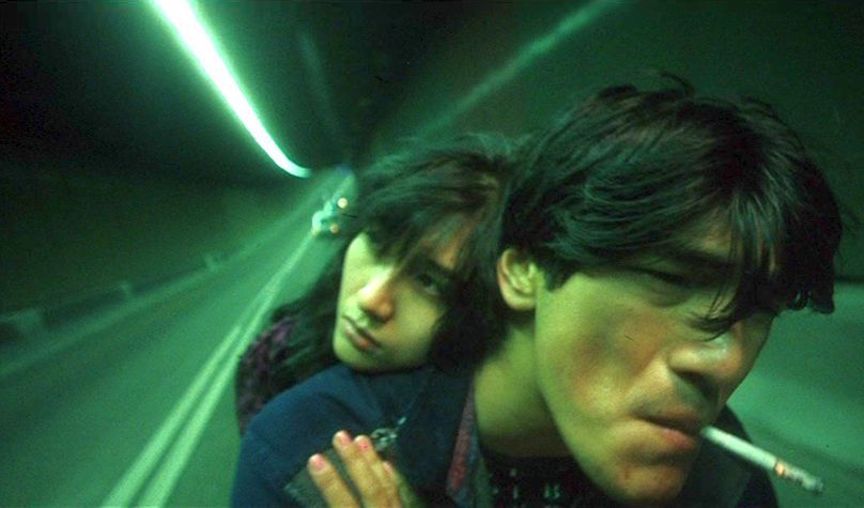
Fallen Angels (1995) Hurtling along at breakneck speed, wildly innovative director Wong Kar-Wai intersects several criminal characters in Hong Kong’s twilight neon underworld. There’s a hired killer (Leon Lai) and his femme fatale partner (Michelle Reiss), who works independent of him. She sets up each hit and then obsesses about him when she’s alone. There’s a scruffy, charming crook who hasn’t spoken since he ate an expired can of pineapples when he was 5 (an affectionate not to Kar-Wai’s own Chungking Express). Using distorted lenses and speeded-up motion, awash in burnt orange, hazy blues and aquamarine, these characters comically careen past each other in a desperate search for love.
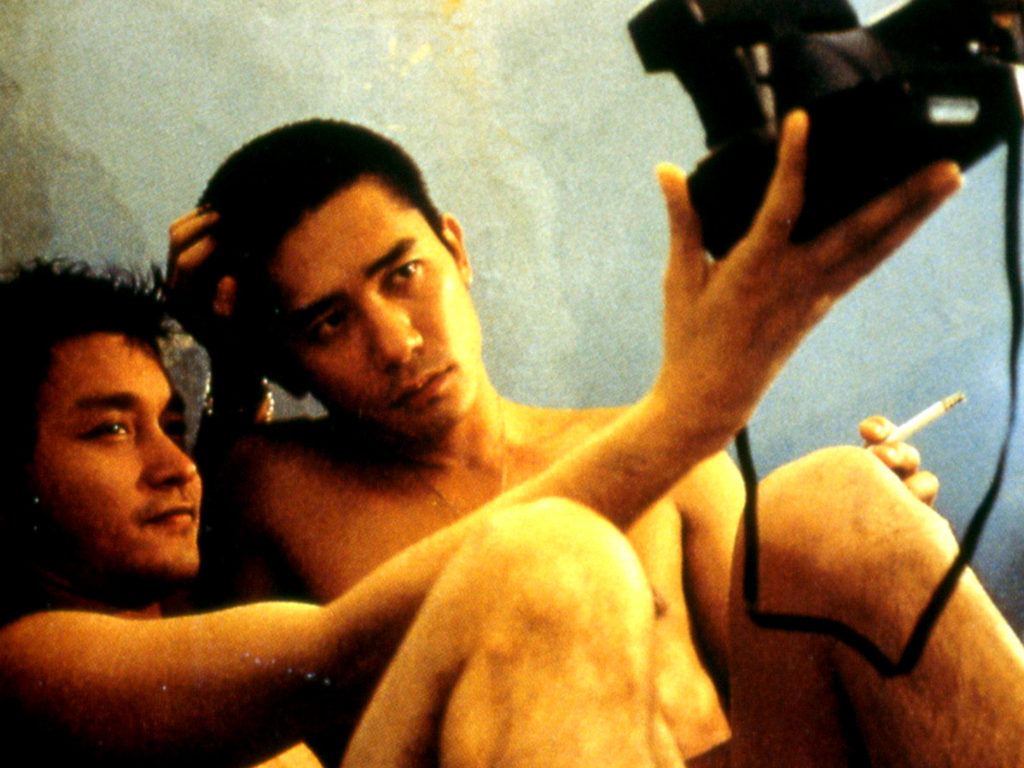
Happy Together (1997) A bittersweet look at the messy end of a gay love affair. The movie zig-zags back and forth in time as Ho Ping-Wing (Leslie Cheung) and Lai Yiu-Fai (Tony Leung Chiu-wai) travel from Hong Kong to Buenos Aires to rekindle their relationship. Their car breaks down during a contentious road trip and they break up. Fai ends up a promotor for a tango bar, while Wing ends up escorting, getting beat up when he steals a watch from a client. Fai nurses him back to health, torn over his anger at his ex-boyfriend and also desire for him. In a voiceover, Fai admits he was happiest when Wing was injured, that it rekindled their romance, however short-lived. Director Wong Kar-Wai chooses to tell the story in such a unique, avant-garde manner, but never loses the sense of sensual longing, sadness and regret.
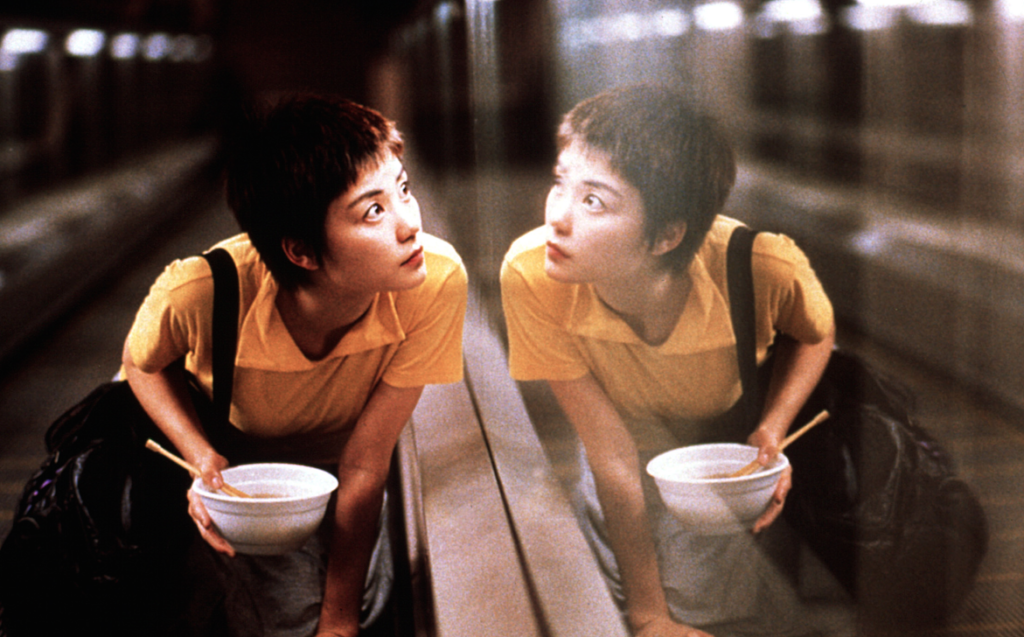
Chungking Express (1994) This delightful romantic comedy about love, loss and expired pineapples juggles several stories. One is about a cop dumped by his girlfriend May who begins a ritual of buying cans of pineapples with the expiration date of May 1, because pineapples were her favorite. He crosses paths with a woman in a blonde wig mixed up with the drug underworld. Another story is about another jilted cop, whose girl dumps him leaving the keys to his apartment. He hands them over to a female friend who works a snack bar, who is actually smitten with him, and she goes to the apartment from time to time to redecorate it. The themes of fateful encounters and heartsick lovers reappears throughout his films. This movie got ecstatic reviews from critics and did well at the box office.
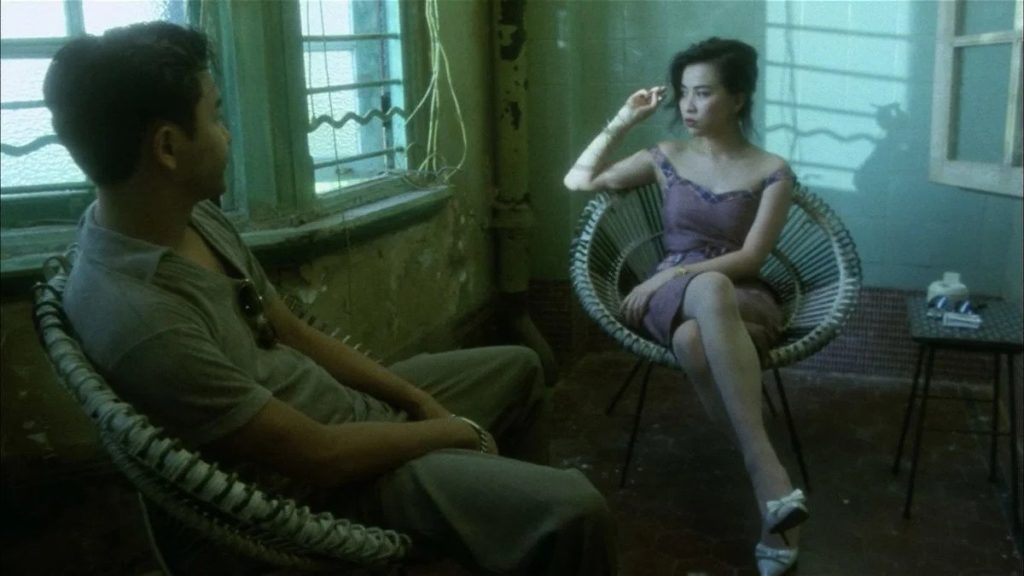
Days of Being Wild (1990) This film marks the first collaboration with cinematographer Christopher Doyle which helped visually capture the director’s mindset in amazing ways. This film is set in the early 60s in Hong Kong and the Philippines. Leslie Cheung plays York, a playboy whose girlfriend (Maggie Cheung) suffers from depression. He befriends, and becomes very close with a cop (Andy Lau). York falls for a beautiful dancer (Carina Lau) who is secretly loved by York’s best friend (Jacky Cheung). York’s failure to commit to women all stems back to his problematic relationship with his adoptive prostitute mother. This dark, dreamy film was misunderstood by critics at the time, but stepping back to survey the director’s career fits in beautifully.
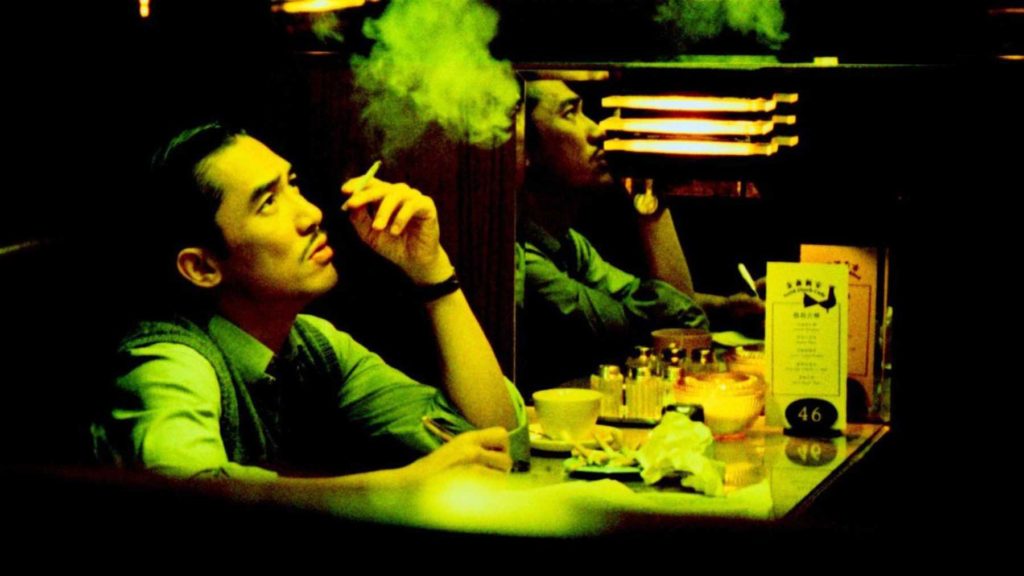
2046 (2004) A ravishing masterpiece by Wong Kar Wai, less a sequel to In the Mood for Love but an extenuation in theme and style. Tony Leung Chiu-wai plays the writer of pulp erotic novels living in a seedy hotel in Hong Kong in the 1960s. 2046 is the room number across the hall and the sci-fi novel he is composing about a futuristic city where people come to relive old memories. The striking imagery by cinematographer Christopher Doyle and music by former Fassbinder collaborator Peer Raben (mixed with repeated use of Nat King Cole) creates a wildly intoxicating atmosphere. In the Mood for Love was all about frustrated desire, this movie is the journey he undertakes with three women in his life- the tempestuous woman across the hall (a stunning Ziyi Zhang), a mysterious Singapore gambler (Gong Li) and the landlord’s lovelorn daughter (Faye Wong). It’s a tangle of lust, memory and sweet regret and while the movie’s overlong and possibly self-indulgent it resonates so deeply at times you can forgive the director practically anything.
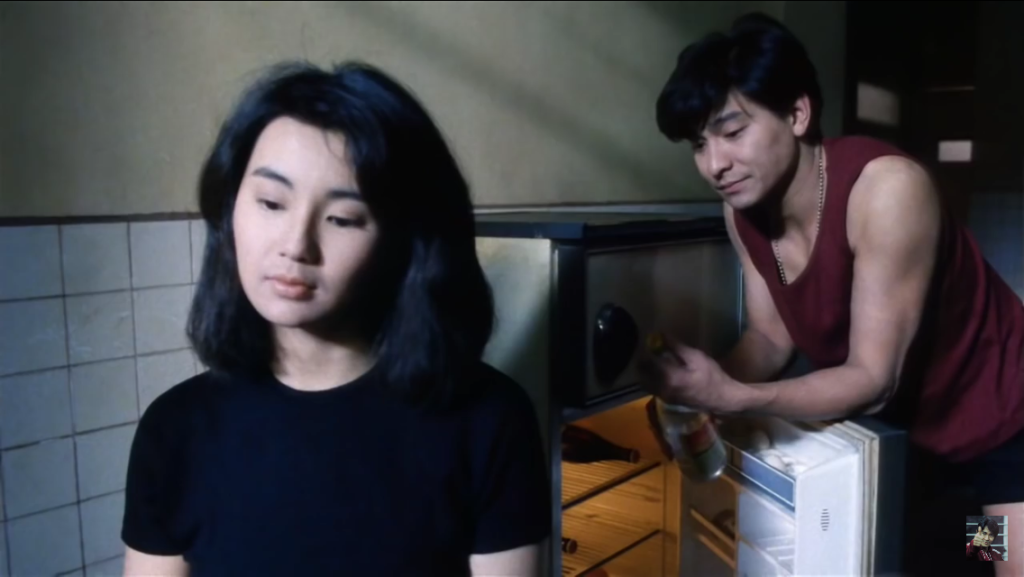
As Tears Go By (1998) This was Wong Kar-Wai’s debut entry into the movie industry, attempting to adapt to the crime films that were popular at the time, but with his own inimitable spin. It’s about a young triad thug Wah (Andy Lau) and a beautiful cousin (Maggie Cheung) that comes to crash on his couch. In a Mean Streets-like homage, Wah is also trying to keep his wanna-be-gangster friend Fly (Jacky Cheung) out of trouble. With all of Wong Kar-Wai’s playfulness, romanticism and immersion into that particular world- with its mah-jongg parlors, dangerous alleys and neon-lit streets of regret.

